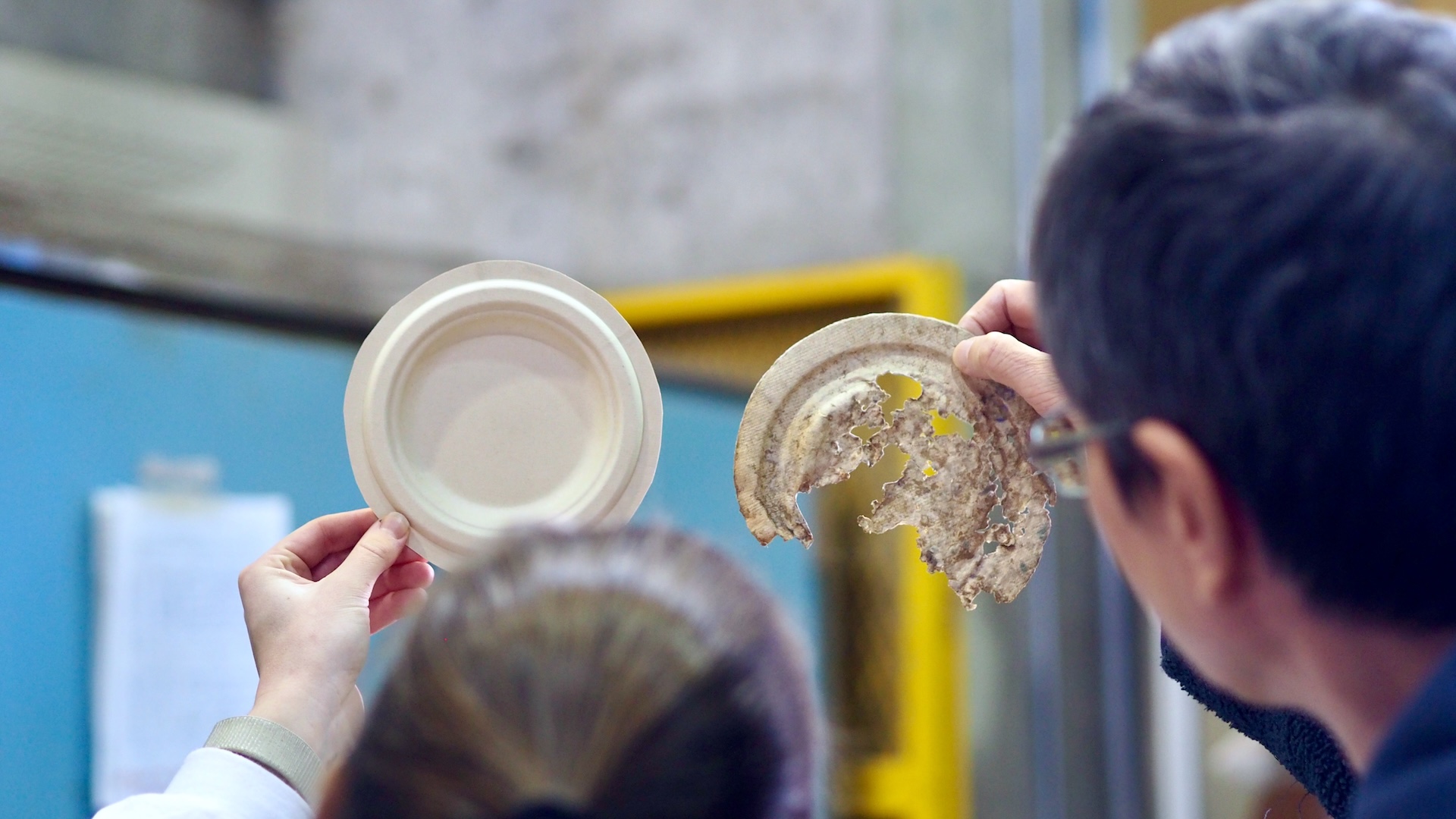This might actually work
Lou Bosshart
 |
| Researchers examine bamboo takeout containers —one intact and one deteriorated. Photo: Lou Bosshart/UBC |
Forever chemicals, or per- and polyfluoroalkyl substances
(PFAS), are commonly used in disposable packaging for their oil- and
grease-resistant properties. However, they persist in the environment and have
been linked to plastic pollution and serious health concerns.
With support from industry partner Bambooers Lifestyle
Concept Limited, Camryn Collette, a forestry master’s student, has developed
takeout plates made from bamboo and a natural, starch-based PFAS alternative.
This biodegradable substance provides similar grease resistance to PFAS without
the environmental cost, and meets U.S. Food and Drug Administration safety
standards.
Throw it in the compost
To test biodegradability, Collette buried over 300 plates
made from bamboo and bagasse, or sugarcane pulp. Within six months, all had
fully decomposed, leaving only tiny scraps.
“Six months is the standard for industrial composting, where
temperatures reach up to 60 C. Yet our custom bamboo plates degraded just as
fast under normal conditions, suggesting they’ll break down easily in backyard
compost,” Collette said.
Ditch the plastic
The research’s ultimate goal is to make bamboo a viable,
eco-friendly alternative, says Prof. Chunping Dai, a bamboo expert in the UBC
faculty of forestry, who supervised the work.
“Bamboo grows incredibly fast: you could grow a small forest
in a couple of months. It’s a renewable resource that can reduce our reliance
on plastics while offering the durability takeout containers need, without
polluting landfills for decades.”